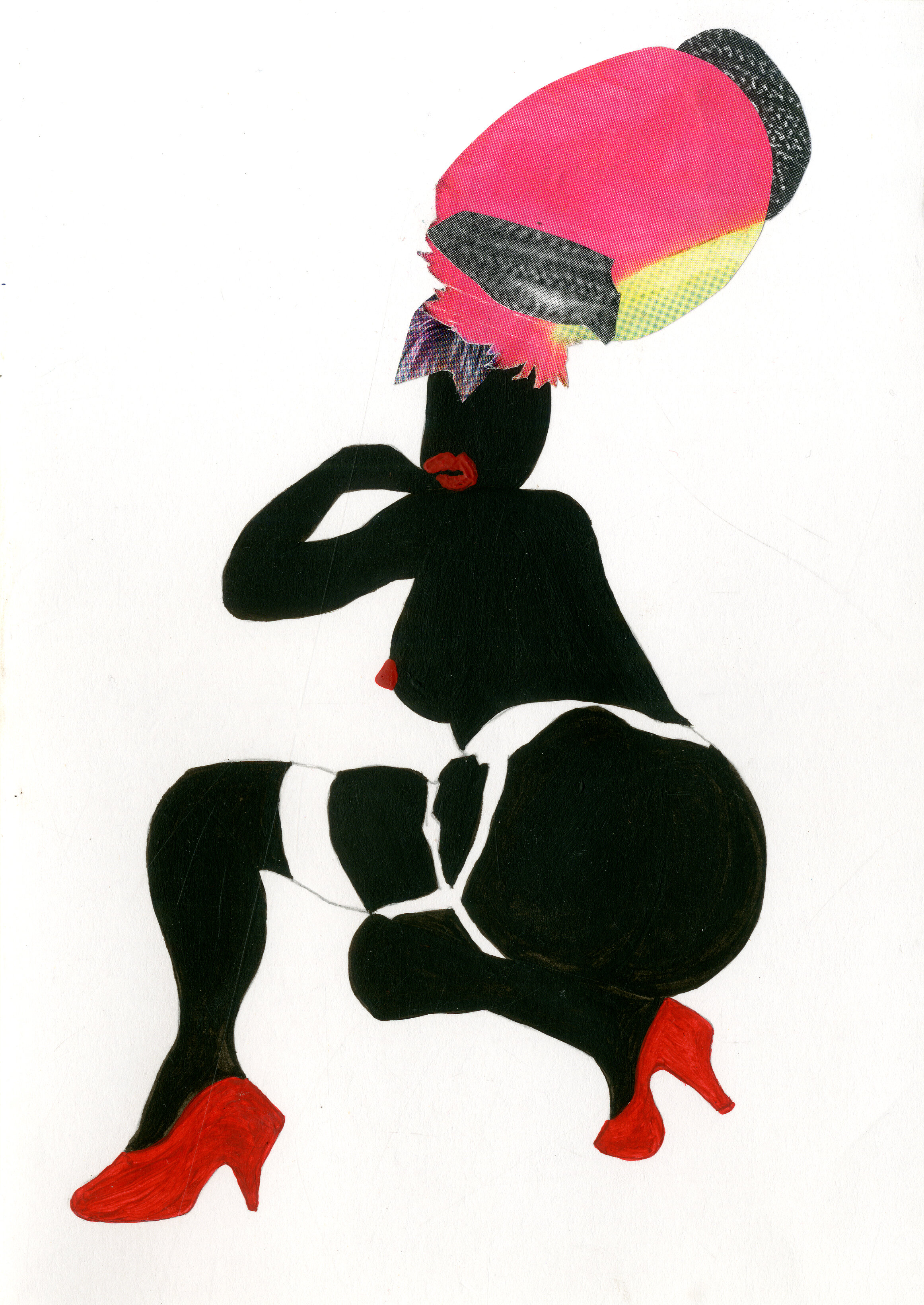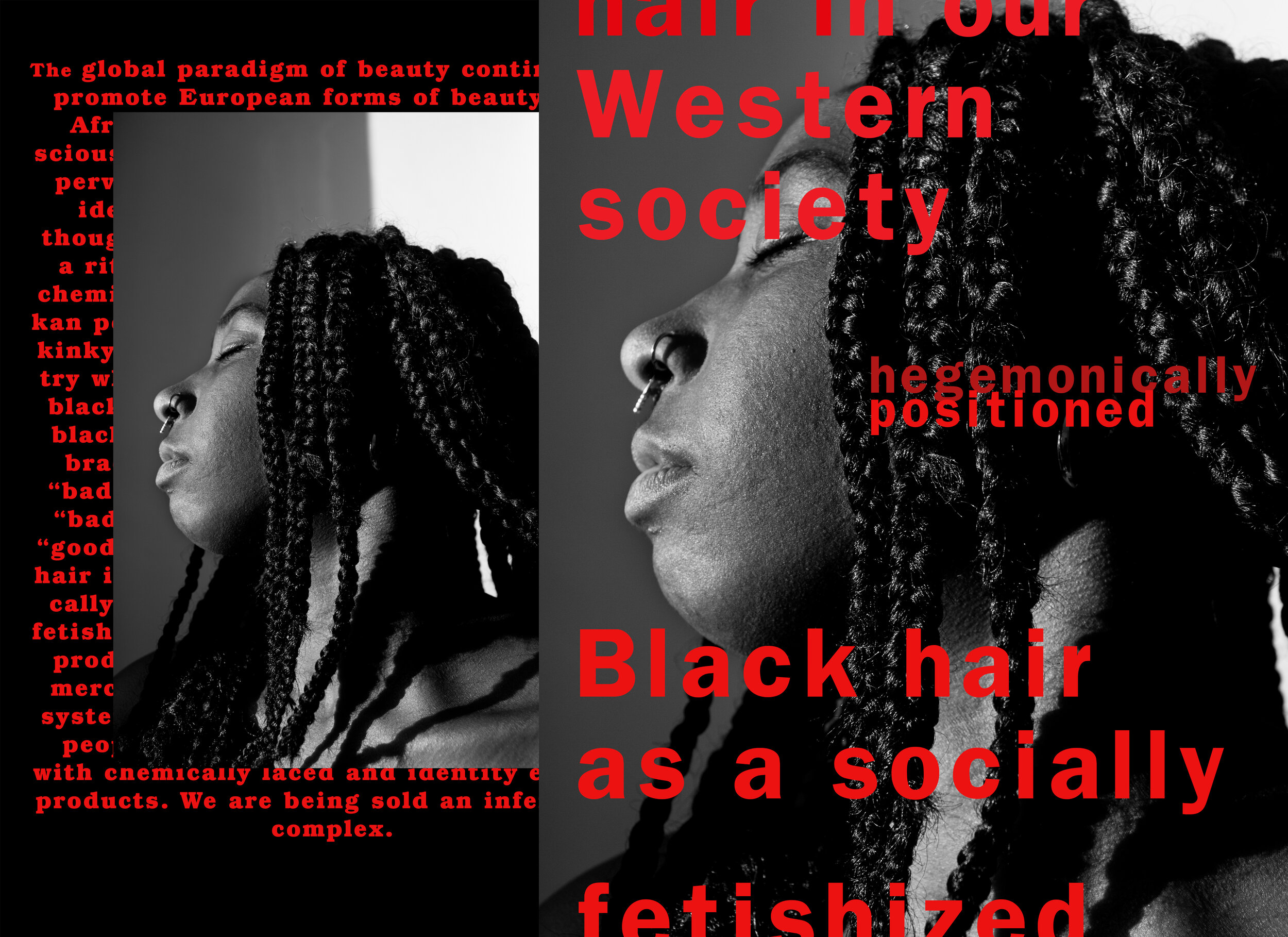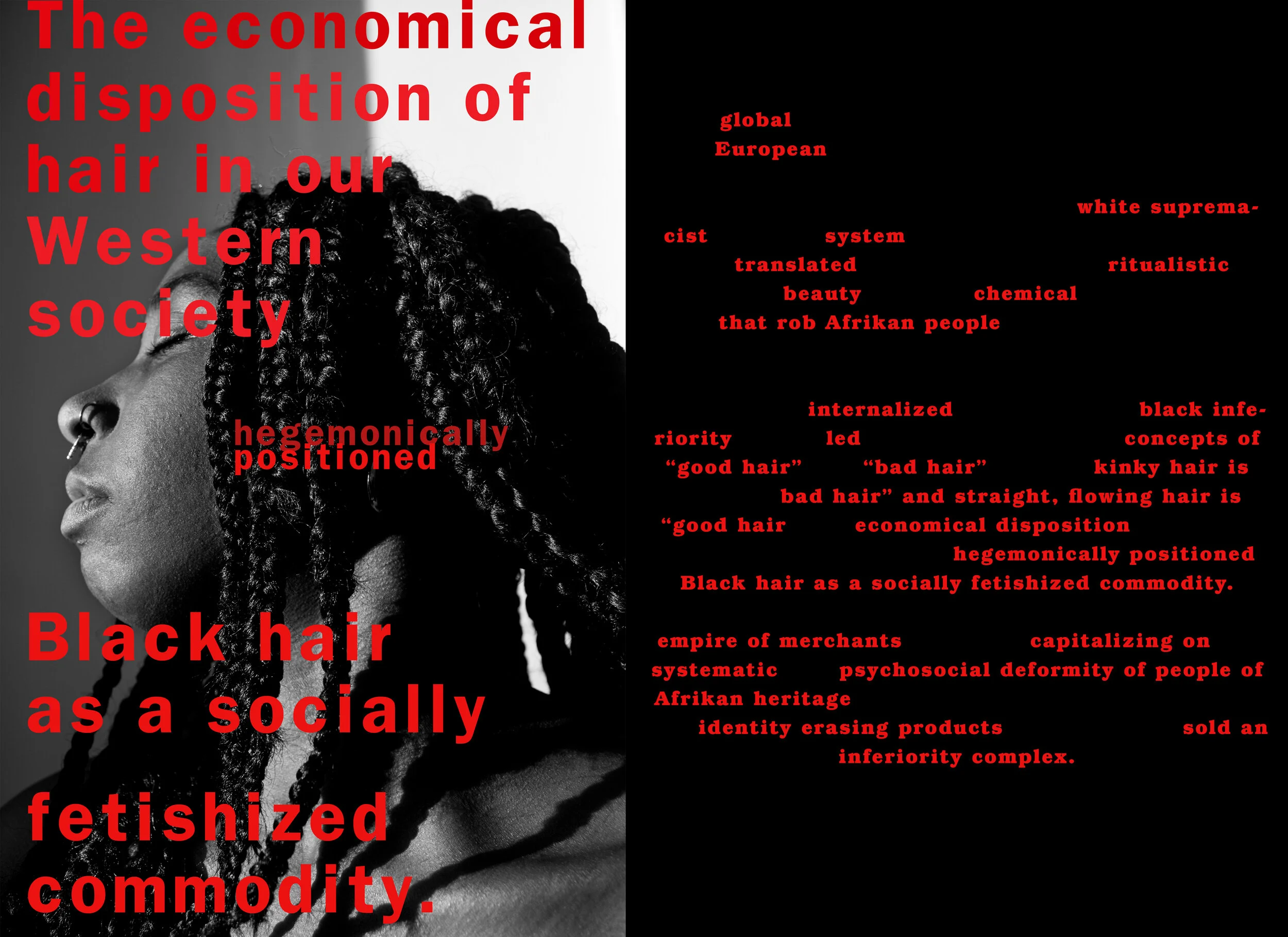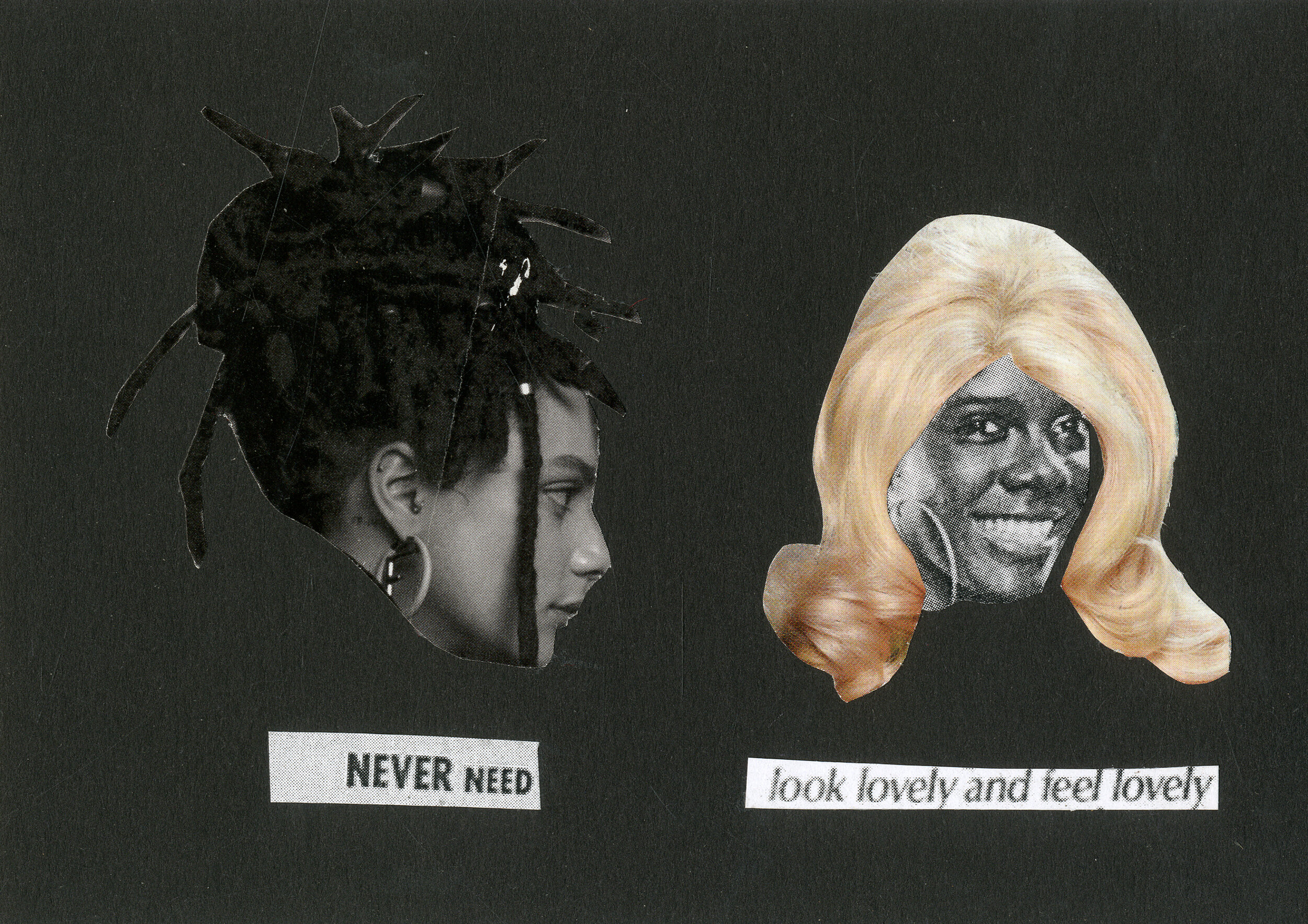The Fetishism of Black Hair
This case study project explores the fetishisation of the Black female identity by closely examining how our hair and bodies are commodified through a post-colonial lens. This subject matter is further examined in the four visual series: ‘Hair – as visible as skin’, ‘The Exotic and The Erotic’, ‘The antithesis of American beauty’ and ‘Economical Disposition’
Hair – as visible as skin
This mixed medium portrait looks at the fetish of Black hair in regards to the burden the black female identity undergoes due to the toxic fixation of Black hair. It explores how colonial thoughts and practices still govern the way people think about and treat Black hair. The piece is called ‘Hair – as visible as skin’ because as Stuart Hall describes, hair is a “key ethnic signifier”, and although hair is an aesthetic feature, the comments people make about Black hair reflect racist and colonial views. Therefore, hair is as visible as the struggles black people experience.
Influenced by Kwesi Owusu’s book ‘Black British Culture and Society: a Text Reader’ ‘Hair – as visible as skin’ reflects the sorrow and pain black women go through due to the negative social stigma attached to their hair. The piece uses quotes from primary interviews conducted where black females were asked about the most absurd things they have been asked about their hair.


The Exotic and The Erotic
These mixed medium collages illustrate the sexualised and exoticised identity of the black female body. The title of this body of work originates from the book ‘The Postcolonial Exotic: Marketing the Margins’ by Graham Huggan which explains:
“fetishism plays a crucial role in colonialist fantasy structures, which draw on the relationship between the exotic and the erotic to set up narratives of desire for, partial containment of, the culturally ‘othered’ body.
Looking through a colonialist lens of fascination I have depicted the ‘Black woman’ as a sexual and foreign spectacle, both through pornographic representation of the body and exaggerated hair forms to show the phenomenon of the exotic.


Economical Disposition
The beauty industry is a Eurocentric construct with ideals that are heavily rooted in colonial values and continues to promote standards that devalue black hair.
‘Economical Disposition’ explores the economical disposition of hair in our Western society and the way Black hair has become a socially fetishised commodity. This combination of photographic portraiture and political typography addresses the notion that the fetish of black hair has become a post-colonial capitalist tool of economic gain to maintain power and control over the wider representation of black hair.
The antithesis of American beauty
These collages are all in response to the statement made by psychiatrists Grier and Cobbs (1968) that: “black women are the antithesis of American beauty.” The sombre and offensive perception that black women are not beautiful holds the connation of unattainability and binary segregation of beauty. ‘The antithesis of American beauty’ collages explore the Eurocentric beauty standards of hair and how it effects the representation and reality of the black female identity.









